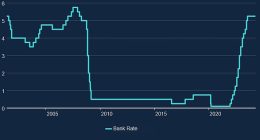EXPERTS have uncovered a dangerous bunch of apps which prey on vulnerable people suffering with money troubles.
Vicious fraudsters lend money but secretly steal data and threaten you with extremely high interest rates later down the line.
The apps aren’t available on the official Google Play Store.
Instead, they lurk on the wider internet where their dubious intentions are harder to detect.
These tend to be found via social media, compromised websites, rogue ads, and phishing messages.
Despite this, cybersecurity firm Zimperium estimates they’ve been downloaded more than 100,000 times.


They promise quick money in a few short steps.
It’s part of a campaign termed “MoneyMonger” which requests certain permissions on your phone.
The “predatory” apps claim it’s to check you have a good standing to receive the loan.
“This gives the victim confidence to enable the very revealing local permissions on the devices, enabling the malicious actors to steal private information from the endpoint,” Zimperium explains.
Most read in Tech
In the background, the apps get hold of all sorts with permission to access the camera, contact list, GPS location data, sound recordings, call logs, text messages and files stored on your phone.
Then the nasty bit kicks in.
If the person doesn’t pay on time – or even after the loan is repaid – the attackers threaten to reveal sensitive information.
They scare victims by saying they will call friends and family from their contacts.
They can even threaten to send photos stolen from your phone.
“Quick loan programs are often full of predatory models, such as high-interest rates and payback schemes, but adding blackmail into the equation increases the level of maliciousness,” the firm warned.
“And due to the financial uncertainty many people globally are experiencing, it is no surprise to find this malware type growing in popularity.”
Experts say one variant has targeted people in India, while another has gone for people in Peru.
No matter what the circumstances, never go for unknown and untrusted places for money.
If you’re having financial problems, seek help from a charity like Citizens Advice.
And finally, just because you can download apps outside of Google Play Store doesn’t mean you should.
It increases your chances of stumbling across a dangerous app like the ones in this case.
A spokesperson for Google said: “None of the identified malicious apps in the report are on Google Play.


“Google Play Protect checks Android devices with Google Play Services for potentially harmful apps from other sources.
“Google Play Protect will warn users that attempt to install or launch apps that have been identified to be malicious.”
Best Phone and Gadget tips and hacks

Looking for tips and hacks for your phone? Want to find those secret features within social media apps? We have you covered…
We pay for your stories! Do you have a story for The Sun Online Tech & Science team? Email us at [email protected]
This post first appeared on Thesun.co.uk








